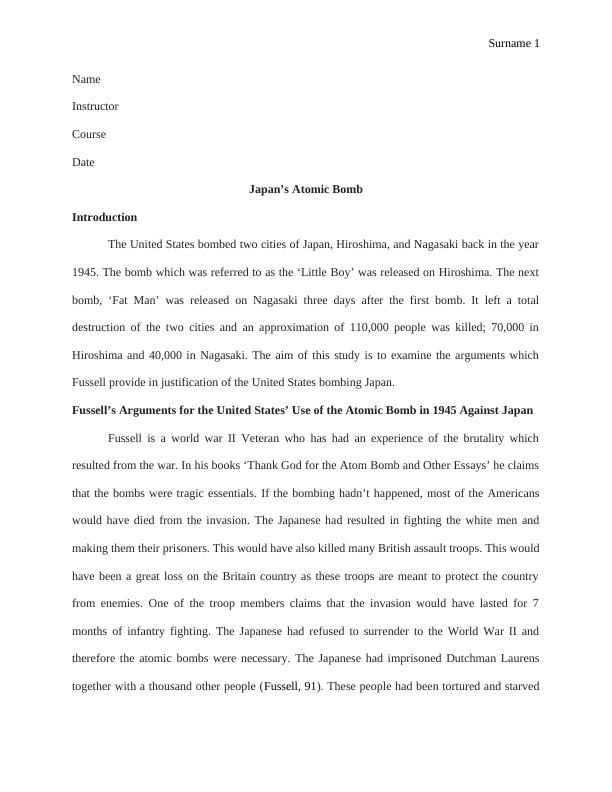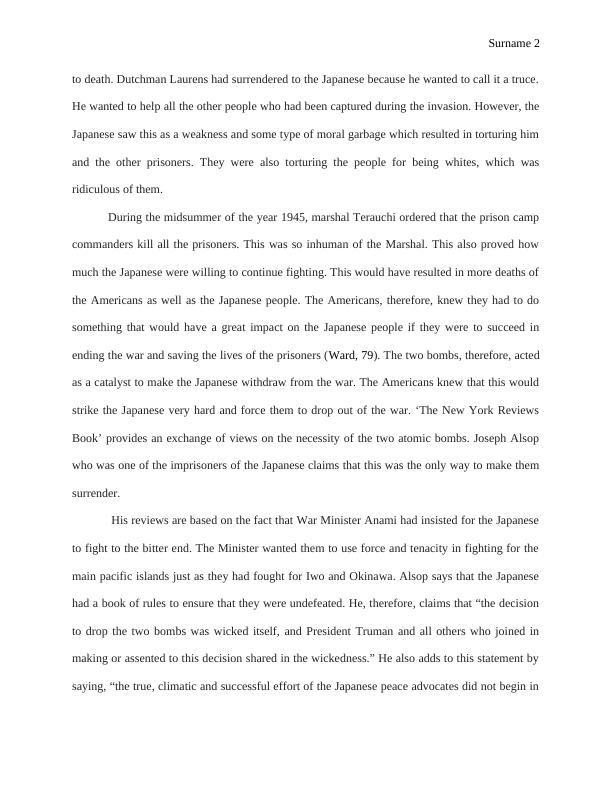Fussell's Arguments for the United States' Use of the Atomic Bomb in 1945 Against Japan
Added on 2023-06-11
5 Pages1567 Words250 Views
End of preview
Want to access all the pages? Upload your documents or become a member.
Dropping of Atomic Bomb in Japan Unjustified
|6
|1647
|496
World War II: History, Memory & Identity
|6
|1251
|29
Was it OK to Drop the Atomic Bombs
|4
|760
|15
Harry Truman's Ethical Dilemma Assignment 2022
|5
|1291
|21
Truman's Decision to Bomb Japan in World War II
|6
|1208
|107
World War II: Bombing of Hiroshima/Nagasaki: Was Truman justified in ordering the dropping of the atomic bomb to end the war
|7
|2003
|200

